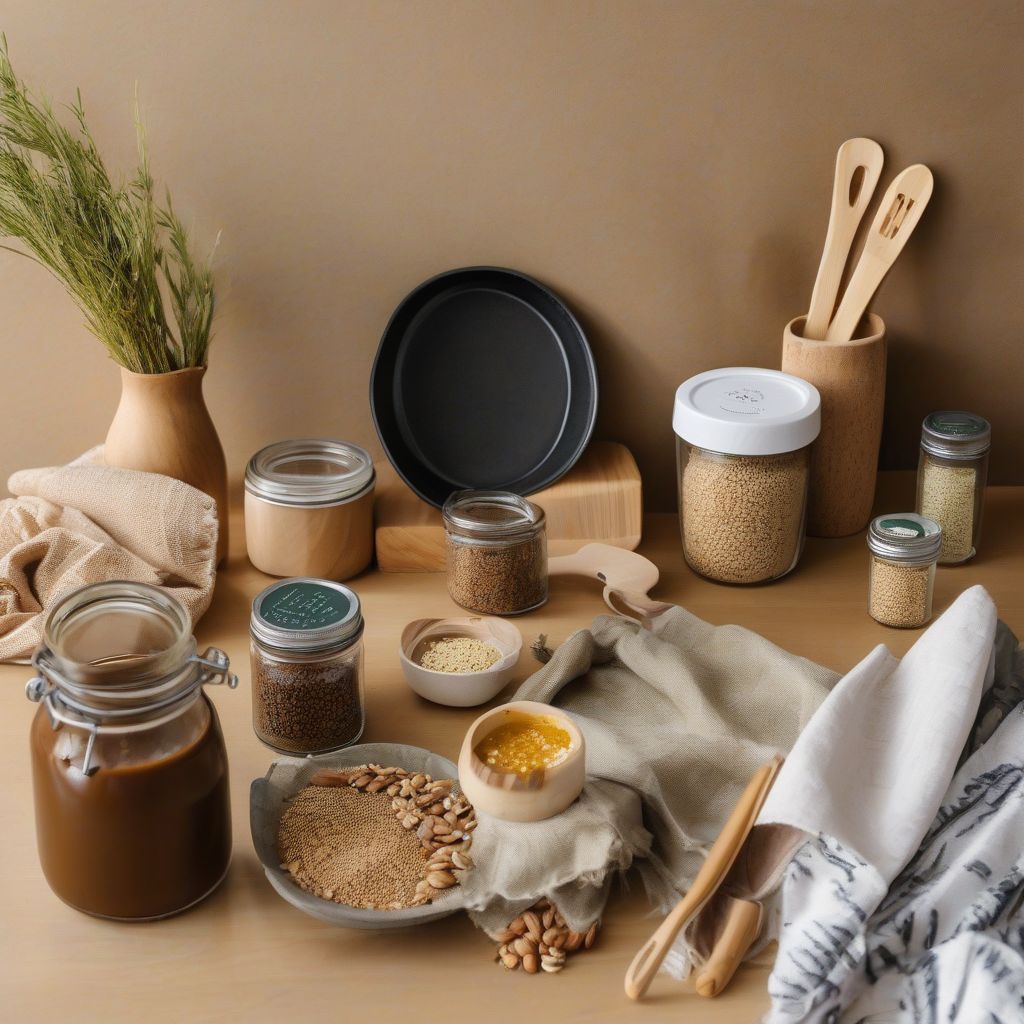Have you ever stopped to consider the sheer volume of waste your kitchen produces in a single day? From plastic-wrapped produce to single-use food containers, it can be overwhelming. The good news is that transitioning to a zero-waste kitchen doesn’t have to be an overnight transformation. As a nutritionist and meal prepping expert, I’m here to guide you through simple, practical steps to minimize your environmental impact, one delicious meal at a time.
Understanding Zero-Waste Living and Its Benefits
Zero-waste living isn’t about achieving absolute zero waste overnight; it’s about making mindful choices to reduce your environmental footprint. In the kitchen, this translates to minimizing trash sent to landfills by adopting reusable, sustainable alternatives. Not only does this benefit our planet, but it can also:
- Save you money: Buying in bulk and reducing single-use purchases translates to long-term savings.
- Improve your health: Choosing whole, unpackaged foods often equates to a healthier diet.
- Simplify your life: A well-organized, zero-waste kitchen is inherently a more efficient one.
Step-by-Step Guide to a Zero-Waste Kitchen
Ready to embark on this rewarding journey? Let’s break down the transition into manageable steps:
1. Audit Your Current Waste
Start by taking stock of your kitchen waste. For a week, collect everything you throw away, paying attention to the biggest culprits. This will give you a visual representation of what needs to be tackled first.
2. Swap Single-Use for Reusable Alternatives
- Ditch the disposables: Replace plastic wrap with reusable beeswax wraps, silicone food covers, or simply use containers you already own. Opt for reusable cloth napkins, dishcloths, and shopping bags.
- Embrace reusable containers: Invest in a set of high-quality glass or stainless steel containers for leftovers, packing lunches, and storing bulk food.
- Rethink your cleaning supplies: Transition to refillable cleaning products or make your own using simple, natural ingredients like vinegar and baking soda.
3. Shop Smart and Reduce Packaging
- Plan your meals: This will help you buy only what you need and minimize food waste.
- Embrace your local farmers market: Buying directly from local farmers often means less packaging and fresher produce.
- Explore bulk food options: Many grocery stores now offer bulk bins for staples like grains, nuts, seeds, and spices. Bring your own reusable containers to fill.
- Choose products with minimal packaging: When shopping for packaged goods, opt for those with minimal or recyclable packaging.
4. Compost Food Scraps
Composting is nature’s way of recycling. Instead of tossing food scraps in the trash, start a compost bin or use a composting system. This will enrich your soil and significantly reduce your environmental impact.
5. Meal Prep Like a Pro
As a meal prep enthusiast, I can’t emphasize enough how meal prepping contributes to a zero-waste kitchen:
- Reduces food waste: Planning your meals means using up all your ingredients efficiently.
- Less packaging: Cooking at home allows you to control the amount and type of packaging used.
- Portion control: Meal prepping ensures you’re not overbuying or throwing away uneaten leftovers.
Zero-Waste Kitchen Essentials
To make the transition smoother, here are a few must-have items:
- Reusable Water Bottle: Ditch single-use plastic bottles and stay hydrated sustainably.
- Reusable Coffee Filter: Enjoy your daily caffeine fix without the waste of paper filters.
- Bamboo Utensils: Keep a set in your bag for meals on the go.
- Solid Dish Soap and Bar Soap: These last longer and come in minimal packaging.
Don’t Aim for Perfection, Aim for Progress
Transitioning to a zero-waste kitchen is a journey, not a race. Start small, celebrate your successes, and don’t be afraid to experiment. Remember, every step you take toward reducing waste makes a difference. For more sustainable living tips and ideas, check out these resources:
- The Best Zero-Waste Products for Eco-Friendly Living
- How to Make Your Own Zero-Waste Household Products
 Zero Waste Kitchen Essentials
Zero Waste Kitchen Essentials
Embrace the Journey
Transitioning to a zero-waste kitchen is about making conscious choices that align with your values. By adopting these simple strategies, you can create a more sustainable kitchen, reduce your environmental impact, and inspire others to do the same.
Remember, every small step towards a zero-waste lifestyle contributes to a healthier planet for ourselves and future generations.
[amazon bestseller=”zero waste kitchen”]
